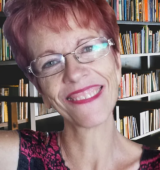
Dissociative Disorders therapists in Notre Dame, Indiana IN

Dr. Alan Ickowitz
Psychologist, Psy.D.
I have helped clients cope with and heal from trauma resulting in dissociative disorders for more than 15 years.
Heartland Healing Counseling & Consultation
Licensed Clinical Social Worker, LCSW, LISW-S, LMHC, LMFT
We will work with you to identify triggers, reduce harm and become more present and embodied.
Dr. Amanda Roberts
Psychologist, PhD Clinical Psychology, Masters in Marriage Family Therapy
There are few clinicians skilled in the treatment of these complex disorders. Dr Roberts has many years of experience working with the traumatic fallout of complex trauma. He has specialist training in dissociative identity disorder and structural dissociation.
Eric Olsen
Life Coach, Trauma, PTSD, BSc Sciences, DoD Career Councilor, SARC, DAPA, Pre Licensed Human Intelligence / Psychology, Life Coach. | Professional Support: LSSBB, PgM, Bluestone PMP,
We help you work through your dissociative disorder and find new habits and patterns to heal.
Nancy Hayes-Gary, Psy.D.
Psychologist, Licensed Psychologist, MD , Psy.D.
Grounding, soothing, and leaning to separate out past trauma from present reality helps decrease dissociation. I also approach this with some of the approaches I’ve already mentioned. People who dissociate are often plaques with past thoughts or memories of a very difficult time. Exploring childhood patterns of family interactions gives one a key to understanding their dissociation as a trauma response. Learning other trauma responses that don’t come with the down sides of dissociating, like memory problems or depersonalization/derealization anxiety.





